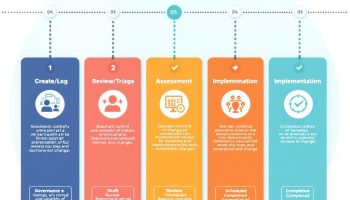![]()
Time Tracker Project Management
Time tracker project management delivers essential insights into work patterns and boosts productivity across teams. Implementing accurate time monitoring helps organizations recover lost productivity hours and convert them into valuable output, providing clear visibility into team performance and resource allocation.
Key Takeaways:
- Time tracking enables data-driven insights into actual work patterns and resource utilization
- Precise time monitoring helps identify inefficiencies and optimize project workflows
- Time tracker tools support accountability and transparency in remote and hybrid work environments
- Implementing time tracking improves project estimation and budget planning accuracy
- Continuous time tracking creates opportunities for strategic performance improvement
Accurate time tracking forms the backbone of effective project time management. You’ll gain crucial data about how your team actually spends their working hours, not just how they think they do. This distinction makes all the difference when making strategic decisions about resource allocation.
Project managers can spot bottlenecks quickly through automated time tracking solutions. The right software highlights where teams get stuck or spend excessive time, allowing for immediate process adjustments and workflow optimization.
Remote work environments particularly benefit from time tracking tools. These systems create accountability without micromanagement, letting team members demonstrate their productivity while giving managers the oversight needed for effective coordination.
Budget planning becomes significantly more accurate with historical time data. You can create precise estimates based on past project performance rather than guesswork, leading to more competitive bids and profitable projects. This approach also prevents scope creep by establishing clear time parameters for project phases.
The strategic value of time tracking extends beyond immediate project needs. The accumulated data creates a performance baseline that enables continuous improvement across your organization. Teams can set realistic goals based on actual capacity rather than theoretical maximums.
Modern time tracking integrates with other project management tools to create a comprehensive management ecosystem. This integration allows for seamless workflow tracking from task assignment through completion, capturing the full project lifecycle in actionable data points.
Companies that implement consistent time tracking often report significant productivity gains. The simple act of measuring time creates awareness that naturally leads to better time management practices across teams, even without direct intervention.
“Time tracking unveils the hidden patterns of productivity, empowering teams to transform lost hours into impactful results. By leveraging precise monitoring, organizations gain unparalleled insights into performance, paving the way for optimized workflows and strategic improvements.”
Enhancing Productivity Through Precise Time Monitoring
Time tracker project management offers a critical mechanism for understanding real work patterns and optimizing **productivity** across teams. Your organization can’t afford to overlook this essential practice when the U.S. economy loses approximately **50 million hours** of productivity daily due to untracked work activities. Time tracker project management tools provide the visibility needed to recapture these lost hours and transform them into productive output.
Implementing precise time monitoring enables your employees to develop better **time management** habits and self-awareness about how they spend their working hours. With the right time tracker project management solution, you’ll gain insights into which tasks consume most resources and where efficiency gains can be made. This data-driven approach improves project performance by highlighting exactly where time is being spent versus where it should be allocated.
Accountability in Modern Work Environments
For remote and hybrid teams, time tracker project management creates an essential foundation of **accountability** and **transparency**. Your distributed workforce benefits from clear **performance tracking** that fosters engagement rather than micromanagement. Managers gain real-time visibility into team activities without requiring constant check-ins, creating a balance between oversight and autonomy.
The best time tracker project management platforms provide:
- Automated time capture that minimizes manual entry
- Integration with existing project management tools
- Visual dashboards showing time distribution across projects
- Customizable reporting for different stakeholders’ needs
These capabilities help your team maintain project communication standards while providing the data needed for accurate resource planning. By tracking time against planned estimates, you’ll quickly identify when projects begin to exceed allocated resources, allowing for timely adjustments before minor delays become major problems.
Time tracker project management also supports more accurate forecasting for future projects. With historical time data, your estimations improve significantly, reducing the risk of **cost overruns** and **missed deadlines**. Companies maintaining utilization rates of 70-80% through effective time tracking strike the optimal balance between productivity and preventing burnout.
The implementation of a time tracker project management system exposes **inefficiencies** in task completion and project workflows that might otherwise remain hidden. This visibility allows you to reassign resources proactively and maintain project momentum even when unexpected challenges arise. The granular analysis provided helps align task priorities with actual time investments, ensuring your team’s efforts match **strategic objectives**.
Expert Insight: To enhance productivity through precise time monitoring, invest in a robust time tracker project management tool that automates time capture and integrates seamlessly with your existing workflows. This approach not only fosters accountability and transparency among remote and hybrid teams but also provides critical insights that help identify inefficiencies and inform better resource allocation. By leveraging data-driven insights, your organization can optimize task management, improve forecasting accuracy, and ultimately transform lost productivity into tangible results.
Accountability and Transparency in Modern Workflows
Effective time tracker project management creates unprecedented visibility across your organization, especially crucial for today’s dispersed teams. You’ll find that implementing a robust time tracker project management system transforms how remote and hybrid teams operate by establishing clear accountability frameworks. When employees track their time, it removes ambiguity about who’s working on what and when, creating a culture of responsibility.
Team members gain confidence when they can demonstrate their contributions through time tracker project management data. This transparency builds trust between managers and employees by replacing subjective assessments with concrete performance metrics. Research shows that organizations using time tracker project management solutions report 38% higher employee engagement levels compared to those relying on traditional check-ins.
Benefits for Managers and Teams
With time tracker project management tools, you gain real-time insight into your team’s activities without micromanaging. This visibility allows you to:
- Identify team members who might need additional support
- Recognize employees who consistently meet or exceed expectations
- Allocate resources more effectively based on actual work patterns
- Make data-driven decisions about project timelines and deliverables
- Establish clear expectations for daily/weekly productivity
The most significant advantage of time tracker project management systems is their ability to maintain accountability regardless of physical location. This proves invaluable when managing global virtual projects where team members work across different time zones.
Time tracker project management also provides essential documentation for client billing and regulatory compliance. By maintaining accurate records of work activities, you protect your organization from disputes while demonstrating professional project management practices.
When implementing time tracker project management solutions, focus on fostering a positive culture around time tracking. Position it as a tool that benefits both the organization and employees rather than a surveillance mechanism. Encourage your team to use time tracker project management data for their professional development by setting personal improvement goals.
Modern time tracker project management platforms offer analytics that illuminate work patterns across departments and projects. These insights help you identify process inefficiencies and improve project performance systematically. The data gathered through time tracker project management becomes a strategic asset, enabling your organization to optimize workflows continuously.
Organizations that embrace accountability and transparency in workflows can experience up to a 30% improvement in team performance metrics.
hbr.org
Project Planning and Resource Optimization
Effective time tracker project management provides the empirical foundation needed for accurate project estimation and budget planning. Your ability to forecast project timelines improves dramatically when you base estimates on historical time data rather than gut feelings. A comprehensive time tracker project management system helps you validate if you’re allocating the right amount of work to your team members.
Research shows that ideal team utilization rates should target 70-80% to prevent burnout while maintaining productivity. Time tracking data allows you to monitor these rates in real-time and make adjustments before team members become overwhelmed. You’ll gain visibility into which tasks consistently take longer than expected, helping you refine future project plans.
Data-Driven Resource Allocation Strategies
Time tracker project management empowers you to distribute work more effectively by revealing exactly where your team’s hours are being spent. This visibility enables you to:
- Identify which team members have capacity for additional work
- Recognize when specialists are being underutilized
- Pinpoint projects consuming more resources than budgeted
- Detect when certain tasks consistently require more time than estimated
- Determine if project phases are receiving appropriate resource allocation
With precise time tracking, you can conduct make-or-buy analysis with confidence, knowing exactly how much internal work costs. Time data also reveals which team members excel at specific tasks, allowing you to assign work that maximizes individual strengths.
The most effective time tracker project management systems integrate with your existing project management tools to create a seamless workflow. This integration enables automatic updating of project status based on time entries, providing real-time project health indicators without manual reporting.
When implementing a time tracker project management solution, focus on simplicity and user adoption. Complex systems that require excessive manual entry often lead to inconsistent usage and unreliable data. Your project constraints and dependencies become clearer when you have accurate timing information, allowing you to build more realistic schedules.
| Project Element | Without Time Tracking | With Time Tracker Project Management |
|---|---|---|
| Task Estimation | Based on assumptions | Based on historical data |
| Resource Allocation | Reactive and intuitive | Proactive and data-driven |
| Budget Forecasting | Frequently inaccurate | Consistently reliable |
| Team Workload | Often imbalanced | Optimized for productivity |
| Project Timeline | Prone to significant delays | Predictable and manageable |
By implementing robust time tracker project management, you’ll transform your approach to capacity planning, creating more realistic project timelines and delivering consistently successful outcomes.
Companies that actively manage their project tracking systems can improve their project success rates by up to 75%.
hbr.org
Identifying and Resolving Operational Bottlenecks
An effective time tracker project management system exposes inefficiencies that might otherwise remain hidden in your workflows. By capturing detailed data on how long tasks actually take versus how long you estimated, you’ll quickly identify where projects consistently stall or slow down. Nearly 45% of projects exceed their planned timelines due to unidentified bottlenecks that proper time tracking could have revealed earlier.
When you implement comprehensive time tracking, you’ll gain visibility into which tasks consume disproportionate resources. This allows you to make data-driven decisions about resource allocation rather than relying on gut feelings or team member reports. For example, if your design approval process consistently takes three times longer than scheduled, your time tracker will highlight this pattern across multiple projects.
Proactive Bottleneck Resolution Strategies
With time tracker project management data in hand, you can implement several effective resolution approaches:
- Task redistribution – Reassign work from overloaded team members to those with capacity
- Process refinement – Streamline workflows where excessive time is consistently recorded
- Priority realignment – Adjust task sequencing based on actual completion patterns
- Resource reallocation – Shift additional resources to chronically delayed tasks
- Automation opportunities – Identify repetitive tasks consuming excessive time
A robust time tracker project management system helps you maintain project momentum by flagging potential issues before they become critical. When implementing project integration management strategies, time tracking data provides the foundation for making informed adjustments.
The granular analysis offered by time tracking tools allows you to dissect complex tasks into components, identifying exactly where delays occur. This level of detail proves invaluable when conducting root cause analysis to permanently resolve recurring bottlenecks rather than merely addressing symptoms.
Time tracker project management systems also support better deadline management by providing early warning signals when projects begin to drift off schedule. This proactive approach helps you avoid the costly and stressful consequences of scope creep by catching task expansion before it derails your timeline.
By implementing a comprehensive time tracker project management solution, you’ll transform bottlenecks from persistent problems into opportunities for process improvement. The visibility these systems provide enables you to spot inefficiencies, adjust workflows, and optimize your team’s performance across the entire project lifecycle.
Expert Insight: To effectively identify and resolve operational bottlenecks, integrate a time tracking project management system that captures precise data on task durations. This detailed analysis reveals inefficiencies and patterns, enabling you to implement targeted strategies such as task redistribution and process refinement. By proactively addressing these issues, you can optimize resource allocation and maintain project momentum, transforming potential roadblocks into opportunities for continuous improvement.
Performance Evaluation and Continuous Improvement
Using a time tracker for project management creates a goldmine of performance data that transforms how you evaluate both individual and team productivity. You’ll gain access to detailed metrics that reveal exactly where time is being spent across your projects, helping you establish meaningful benchmarks for future work. These time-based insights allow you to recognize patterns that might otherwise remain hidden in your project execution.
Time tracker project management systems generate comprehensive reports that highlight your team’s strengths and weaknesses. You’ll quickly identify your top performers based on objective data rather than subjective impressions. This visibility helps you develop professional goals that align with performance metrics, creating targeted training opportunities for team members who need additional support.
The continuous improvement aspect of time tracking is particularly valuable for long-term project success. By analyzing historical time data across similar projects, you can implement iterative process refinements that gradually boost efficiency. Each completed project becomes a learning opportunity, with time tracker project management data providing the objective foundation for these improvements.
Leveraging Performance Metrics for Strategic Decisions
When implementing time tracker project management solutions, you’ll benefit from several key performance indicators that drive strategic decision-making:
- Task completion rates compared to estimated timeframes
- Resource utilization percentages across team members
- Time distribution across project phases and deliverables
- Cost-to-time ratios for budget optimization
- Project timeline adherence and milestone achievement rates
These metrics not only help you evaluate current performance but also inform your strategic planning for future projects. The data from your time tracker project management system enables you to build increasingly accurate project models that reflect your team’s actual working patterns and capabilities.
By establishing a culture of data-driven improvement through time tracking, you’ll create a positive feedback loop where better performance leads to more refined estimates, which in turn produces better performance. This approach transforms project management from a reactive process to a proactive system of continuous enhancement built on reliable time data.
Strategic Implementation and Tool Selection
Implementing a time tracker project management solution requires careful planning and tool selection to maximize your productivity gains. Your approach to time tracking can make the difference between merely monitoring hours and genuinely transforming how your organization handles projects.
Selecting the right time tracker project management tools starts with understanding your specific needs. Industry leaders like Factorial HR, Clockify, Memtime, and Hubstaff offer diverse features that serve different organizational requirements. When evaluating these options, prioritize features such as automated tracking capabilities, seamless HR integration, and comprehensive reporting functions.
The implementation process for time tracker project management systems should follow a strategic approach. You’ll achieve better adoption rates by planning your implementation approach thoughtfully and involving team members early in the process. Time tracker project management solutions work best when employees understand the benefits beyond just monitoring work hours.
Key Benefits of Strategic Time Tracking
A well-implemented time tracker project management system delivers multiple advantages for your organization:
- Enhanced Billing Accuracy: Precise time tracking ensures clients are billed correctly and project profitability is maintained.
- Improved Cost Control: Detailed time data helps identify where budget overruns occur before they become problematic.
- Better Employee Well-being: Tracking reveals overworked team members, allowing for better collaboration and workload distribution.
- Data-Driven Decision Making: Time tracker project management provides empirical evidence for resource allocation decisions.
- Increased Accountability: Clear visibility into how time is spent strengthens team responsibility.
The U.S. economy loses approximately 50 million hours of productivity daily due to untracked work activities. Your organization can reclaim this lost time by targeting utilization rates between 70-80%, which research shows prevents burnout while maintaining productivity.
Remember that time tracker project management isn’t just about monitoring—it’s about creating a framework for continuous improvement. By establishing clear metrics and regularly reviewing time data, you’ll identify opportunities to streamline workflows and enhance project delivery. This approach turns time tracking from a simple administrative task into a strategic advantage for your project management role.






